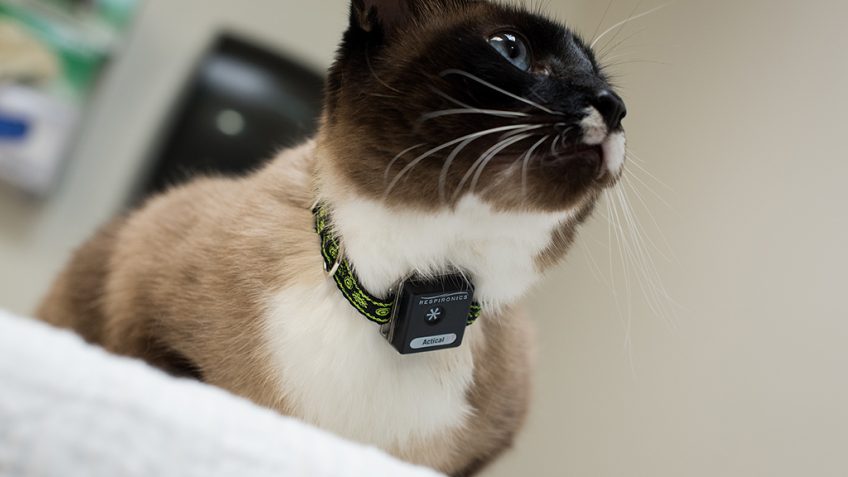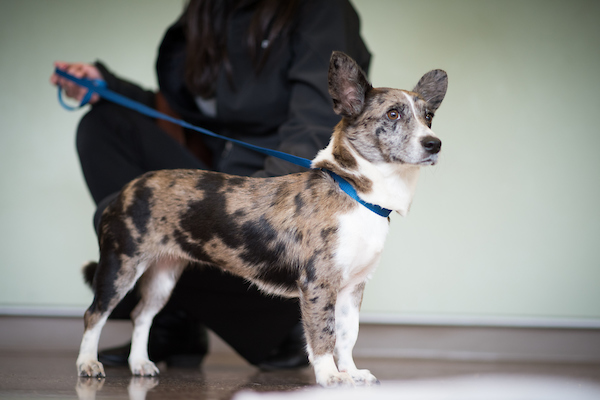Translational Research in Pain (TRiP)
Contact us: 919-513-6854
cvm_cprl@ncsu.edu or FAX: 919-513-6680
Overview
The Translational Research in Pain (TRiP) team’s mission is to improve pain management in animals and humans.
We achieve this through:
• Developing methods to measure the impact of pain in animals
• Unraveling the neurobiological signature of pain in naturally occurring chronic disease in animals
• Testing novel therapeutics for pain relief in naturally occurring disease in animals
News
- Dr. Lascelles named to the Dr. J. McNeely and Lynne K. DuBose Distinguished Professorship in Musculoskeletal Health
- Ever wondered about differences in breed sensitivity to pain? Read our collaborative research
- Graduate student Ankita Gupta wins the ‘3 Minute Thesis’ Competition
- TRiP and CPREC (https://cvm.ncsu.edu/cprec/) successfully host the first Veterinary Technician ‘Teach the Teacher’ Program
Ongoing Research
- Discovery of novel pain relieving approaches
We also carefully collect and analyze blood and synovial fluid from pet dogs with painful conditions to investigate what is actually causing the pain on a molecular level. Tissue samples are collected from dogs to investigate neuronal changes that occur with chronic pain to discover unknown mechanisms and new pharmacological targets. The similarities between dogs and humans make these samples particularly useful for developing novel, effective, and safe therapeutics both in veterinary and human medicine.

- Chronic musculoskeletal pain in cats
It is estimated that approximately 45% of all cats (and over 90% of cats over 10 years of age) show signs associated with musculoskeletal (e.g. joint) pain, making it the most common condition in cats. Our team develops ways to measure the disease and pain so that we can test potential therapeutics, and unravels the causes of musculoskeletal pain in cats. We use many approaches to measuring the impact of pain in cats, including activity monitors worn on the collar in the home environment.

- Chronic pain in dogs: a model of human chronic pain
Naturally occurring osteoarthritis and osteosarcoma in pet dogs is very similar to the same conditions in humans. We study osteoarthritis and osteosarcoma in pet dogs as models of the human conditions, allowing us to both learn more about how to manage these painful conditions in dogs, and contribute to the development of non-opioid pain therapeutics in humans. We use a wide variety of validated subjective and objective outcome measures to assess putative analgesic drugs that may be developed for use. Watch this video where experts in the veterinary and human pain fields talk about how pets can contribute to human pain research and benefit themselves.
We also carefully collect and analyze blood and tissue from pet dogs with painful conditions to understand what is actually causing the pain, and to develop novel, effective and safe therapeutics.
- Evaluation of activity in dogs with osteoarthritis
‘Wearable technology’ is a rapidly developing field, and may allow us to detect developing conditions, including pain, earlier. Such technology also has the potential to allow us to measure the impact of pain on overall activity, an animal’s ability to perform certain activities, and sleep quality, and of course to measure the benefit of therapeutics. We are actively working in this area to assess the utility of wearable technology in cats and dogs, and to develop ways to appropriately manage and interpret the data generated.

Enrolling!

Clinical Metrology Instruments
One goal of the Translational Research in Pain (TRiP) Program is to produce valid clinical metrology instruments (questionnaires) for the assessment of pain, physical function and quality of life. These tools are targeted at measuring one or more of the impacts of pain:
- Pain (adverse sensory and emotional experience)
- Mobility (the quality of moving freely)
- Activity (the ability to perform specific activities)
- Affective Effects (mood, feelings)
- Sleep quality
- Cognitive Ability (ability to think and process information)
North Carolina State University Collaborators
Resources
Journals
- Pain
- Veterinary Anaesthesia and Analgesia
- Anesthesia and Analgesia
- British Journal of Anaesthesia
- Journal of Pain
- Molecular Pain
Professional Organizations
- International Association for the Study of Pain
- IASP SIG on Non-Human Pain
- International Veterinary Academy of Pain Management
- CTSA One Health Alliance
External Collaborators
- Dr Amanda Nelson
- Dr Im Sampen
- Dr John Innes
- Dr Monchanok Vijarnsorn
- Dr Naruepon Kampa
- Cytex Therapeutics (Cartilage Regeneration)
Publications
Sponsors
The important work that has been performed in this program has been made possible by generous donations and research grants awarded. These donations and grants allow us to continue our work improve veterinarians’ ability to alleviate pain in animals, and to use this knowledge in human translational research to assist in the alleviation of pain in humans.
You can support the work of the Translational Research in Pain (TRiP) Program with a tax-deductible donation (please indicate the name of the lab in your gift).
Wall of Fame

Research Team
Principal Investigators
Staff and Associates
Post-Docs
Graduate Students
DVM Research Assistants
None at this time








